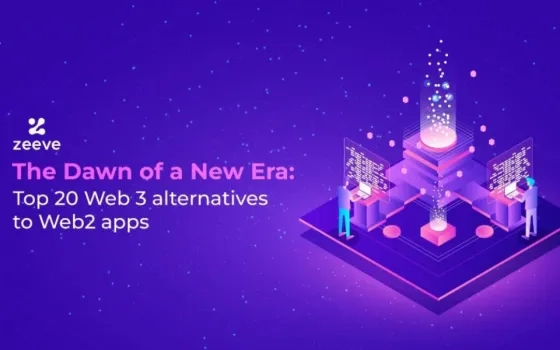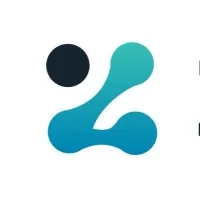The era of Web3, the next generation of the Internet, is here, and it is still in its active development phase. The burgeoning of a new breed of decentralized applications is progressing quickly and faring well. They offer alternatives to popular centralized tools and services, and they are impressing web users worldwide. The potential for creating content and generating profit afforded by the current incarnation of the internet, otherwise known as “Web 2.0,” is immense. Yet, this potential is largely dependent upon the involvement of tech heavyweights such as Google, Facebook, and Twitter.
Web3 apps offer users the ability to interact with the digital world in more meaningful and powerful ways. It is a decentralized platform that offers users the potential for greater control over their data and digital assets, as well as the ability to engage in more secure and trust-minimized transactions. Web3 seeks to rest complete control away from financial institutions and governments, just as Bitcoin does for the Internet.
Unfortunately, not many people know about these incredible applications yet. This blog will explore and showcase some of the best blockchain-based mobile apps, so users can discover and use them. In this blog, we’ll take a look at the top 20 web3 alternatives to web2 apps, and how they can benefit users in their everyday lives.
Best Web3 alternatives to web2 apps
Let’s now learn about numerous Web3 applications that are already existing and can be used to replace the well-known Web2 providers.
- Audius Vs Spotify: Music lovers can explore the blockchain-based music streaming platform – Audius instead of Spotify to have complete control over their music collection. Artists and record labels can exercise more control over their musical content. Through Audius, they can create and utilize immutable recordings, and a decentralized network of nodes will ensure digital ownership, which was not possible with web2 music apps earlier. This platform eliminates middlemen in the music industry by directly connecting artists to their fans.
- Presearch vs Google: In comparison to the powerful search engine giant – Google, Presearch is a newer search engine that allows users to remain anonymous while searching online. Presearch does not store any of the user’s search data or personal information, making it a more private search engine option. Furthermore, Presearch rewards users with tokens for using the service, which can be exchanged for cryptocurrency or used to purchase products and services. This makes Presearch a more attractive option for those concerned with privacy and who want to earn rewards while searching online. Google also stores your search data and personal information which can be a privacy concern. Presearch is a great alternative to Google for those who are looking for a privacy-centric search engine.
Another major advantage of falling back on web3 alternatives to Google Preserach is that it is an independent search engine, which gives out the search results without any bias or manipulation. This means that users can get access to different and unbiased search results, which could be different from the results of a search engine like Google. This could be very useful for those who are searching for something specific or for a certain type of information.
- Leinster Vs twitter: If you thought Twitter to be the best among all social media networking applications that lets you create digital content then you should better become aware of the new web3 twitter alternative – Lenster. It also offers its users the ability to create and manage their own digital collectibles, which can be used to create unique digital experiences and monetize their content. This includes creating digital collectibles such as music, art, and even virtual goods. Lenster offers a safer and more confidential alternative to customary social media networks like Twitter. It provides users with the option to communicate and interact without exposing their personal data to the public. It allows users to own their data, monetize their content, and create unique digital experiences. Leinster is revolutionizing the social media landscape by exploiting the potential of crypto addresses and NFTs for authentication and revenue generation. This is a definite game-changer in the sector. That means users now get to control their content and personal data, rather than relying on a centralized company like with traditional social media accounts.
- Filecoin Vs Dropbox – Another really cool web3 alternative to web2 app that allows you to store your data in a decentralized manner – kind of like a decentralized version of Dropbox is the Filecoin. What’s great about it is that it has built-in economic incentives for users, so you can actually earn rewards for storing data on the platform. It uses the IPFS protocol and anyone can join by either paying to store their files on the network, or adding their own storage hardware to the network and get rewarded with FIL tokens. It’s one of the main infrastructure projects in the Web3 direction, so it’s definitely worth checking out!
- IPFS VS GDrive – Another web3 alternative to web3 that has been creating ripples is the IPFS, which is an open-source, peer-to-peer, distributed hypermedia protocol that is designed to act as a universal file system for all computers. It stands against the big web3 competitor – Google Drive, which is a cloud storage service where you can store and share files, as well as collaborate with others. The prime goal of IPFS is to link up all the nodes that connect to the system and replace the Hypertext Transfer Protocol (HTTP) with one unified space. An impressive fact about it is that it is already being put to good use! It looks like e-commerce sellers are using it to create digital storefronts, and medical institutions are leveraging it to share info on diseases. Impressive!
- Braintrust Vs Upwork: Braintrust is the best web3 alternative to upwork for freelancers and artists trying to get paid without having to share their income. It is a decentralized labor exchange that connects talented people with famous companies – without intermediaries. All transactions are done with their token via smart contracts, so users don’t have to worry about paying anyone else. Thousands of jobs are added to the platform daily. Upwork is a website that enables employers to find qualified freelancers to complete short-term projects. It offers an opportunity for businesses to connect with independent professionals from around the world to get projects completed quickly and efficiently. Braintrust focuses on the quality of work, while Upwork focuses on connecting businesses with the right freelancer for their project. Braintrust also provides an additional layer of trust and quality assurance, which makes it a great choice for businesses looking for more reliable, high-quality work.
- Ethereum Name Service VS Godaddy: For those looking to buy a domain name, may want to go with the web3 alternative – Ethereum Name Service (ENS) rather than GoDaddy as their preferred option. Ethereum Name Service (ENS) makes it easy for all those who struggle to remember complex Ethereum wallet addresses and long, confusing numbers and hashes. Launched in 2017, ENS is a distributed domain name system running on the Ethereum blockchain that makes it easy to exchange and remember Ethereum addresses. When it comes to cost, ENS is often the more economical option. With ENS you only pay for the registration fee, while GoDaddy typically charges an annual renewal fee in addition to the initial registration fee. ENS is also more secure than GoDaddy. For example, when you purchase a domain name through ENS, you’re actually buying the encrypted key to a specific address and you have full control of the domain. On the other hand, when you purchase a domain name through GoDaddy, you are essentially renting the domain name from them and they maintain control of the domain. Ultimately, the choice between ENS and GoDaddy will depend on your needs. If you’re seeking a cost-effective and secure domain name, then ENS is probably the best option.
- Indorse VS Linkedin: Have you heard of Indorse? It’s a decentralized social network that is looking to be an web3 alternative to the popular web2 professional networking site- LinkedIn. It’s based on the Ethereum blockchain platform and users can share their professional skills in exchange for crypto points. There are bonuses, called Indorse Rewards, and a rating system, called Indorse Score. The more you use the site and make posts, the more points you can accumulate. All data and bonuses are stored in an Ethereum distributed registry.
- DCloud and Cuemby VS AWS Cloud: DCloud and Cuemby are two strong and promising projects to check out for those looking for a decentralized web3 alternative to AWS Cloud solutions.
Power DCloud is a great web3 infrastructure platform that helps you create full-stack, really decentralized applications quickly and cost-effectively. It is the perfect platform for developers with secure and scalable tools to build their applications, plus a multichain network and AppChains. It also offers decentralized storage and a decentralized appstore with Power Hub. All of this makes it easy for developers to create and deploy their apps without relying on a centralized service provider.
Another great go-to choice for decentralized application development that is ready to shake up the traditional infrastructure industry is Cuemby. Whether you are looking for a way to get your team’s products to market faster or develop applications with less effort and cost, Cuemby is the perfect solution for you! Cuemby’s flexible automation, performance and security features help teams get to market quickly and easily with its varied products ranging from simple to complex. With Cuemby, you’ll have more time to focus on innovation and less time spent on development and deployment.
- Arweave VS Amazon WS S3: Looking for a web3 data storage solution to work as a perfect alternative to web2 storage solutions then fall back on Arweave. It is a brand new data storage protocol, which works in a structure similar to blockchain. It’s the first of its kind to offer truly cost-effective data storage, thanks to the consistent proof-of-access mechanism it uses. Plus, it has its own native AR token that’s used as a reward to miners who store the data and maintain the system’s security.
- Brave VS Chrome Browser: Stuck trying to decide between web2 and web3 browser – Chrome and Brave? Let me break it down for you: Brave is a free and open-source browser, designed with privacy in mind. It blocks ads, third-party cookies, and prevents location tracking. Plus, Brave has an interesting ad model: users can choose to see ads and earn rewards in Basic Attention Token (BAT). It’s very similar to Chrome in terms of its appearance and functionality, but with some key differences in terms of privacy.
- Torum VS Facebook: Torum is an awesome platform that brings together cryptocurrency users and cryptoproject authors. It’s got a SocialFi ecosystem with social networking, cryptocurrency and NFT capabilities so you can communicate with others on any cryptocurrency-related topic, create your own community, exchange tokens, or even sell them on the market! On the other hand, Facebook is more focused on connecting people from all over the world, so it doesn’t have any special features for cryptocurrency users.
- Minds Vs Twitter: Tired of being censored on Twitter and looking for a webster web3 alternative to the popular web2 social networking app that values your freedom of expression? Look no further than Minds! Minds is a revolutionary open-source social network that provides users with the freedom to express their opinions without fear of censorship. Unlike Twitter, where users have to abide by an ever-changing set of rules, Minds allows users to post whatever they want without the fear of repercussions and they can earn rewards for putting in efforts on the platform. Contributors can be rewarded with crypto-tokens for their posts, comments, and safe and transparent engagement on the platform. These tokens can be exchanged for additional content views or sent to other channels as tips or paid subscriptions. In addition to its censorship-free environment, Minds also offers a wide range of features, including private messaging, multimedia support, and an intuitive user interface.
- Sigle Vs Medium: Those in search of an alternative to the traditional Web2 apps for publishing their work and monetizing it, should check out the web3 platform– Sigle. For those seeking remuneration for their efforts in the form of Bitcoin, it is an excellent decision to shift to Sigle. This Web3 app uses the Stacks blockchain to enable writers and bloggers to publish their work and writers can lock in a certain amount of their Stacks tokens (STX) and receive a reward if their content is successful. And, readers can lock in a certain amount of Stacks tokens (STX) to support a particular author.
- MetaMask VS PayPal: Looking for a secure and reliable web3 alternative to web2 apps, then MetaMask is the way to go. This non-custodial wallet offers users the ability to store, send and receive crypto assets, without having to give up ownership of their private keys. It’s available as an extension for Chrome and other browsers, as well as a smartphone app. It’s trusted by developers, supports a wide range of cryptos from different blockchains, has customer support, extra features and a sleek design. Plus, you can use your wallet to sign in and up with many dApps.
- Tactic Vs Quickbooks: Tactic is the perfect software for entrepreneurs looking for a simple way to keep track of their crypto finances. Instead of manually tracking transactions and accounting logic, Tactic does all the hard work for you, providing businesses with a comprehensive overview of their crypto activities. Plus, it can even calculate profit/loss dollars and taxable events, making it an ideal web3 alternative to traditional web2 apps.
- Odysee VS Youtube: Are you looking for a web3 alternative to web2 apps? Look no further than Odysee! This platform is designed to be decentralized and censorship-resistant, enabling users to upload and share videos without any cost. Even better, content creators can earn money from their videos, and users and viewers can reward them for interesting content!
- GM.xyz VS Discord: GM.xyz is the perfect alternative to Discord for crypto enthusiasts. With Reddit-style chat rooms, a user reputation system built on blockchain, and fundraising tools, GM.xyz provides a safe and secure environment for people to connect and chat without any spam or intrusive advertising. Join GM.xyz today and get involved with the crypto community!
- Ideas Vs Kickstarter: Looking for an alternative to web2 platform – Kickstarter, check out Ideas. Ideas is the future of crowdfunding for blockchain projects, and it provides a platform for both investors and entrepreneurs to share ideas, recruit talent, and raise funds. Whether you’re seeking investment or looking to become an investor or donor, Ideas has something to offer everyone.IDEAS is the perfect web3 alternative to web2!
- Heymate Vs Fiverr: Heymate is the perfect web3 alternative to traditional web2 apps such as Fiverr! Heymate is a platform that provides users with a decentralized, user-owned marketplace to be rewarded for their online freelancing and service delivery. This incentivizes the value that is created by those who provide these services. With Heymate, freelancers can enjoy autonomy, governance and transparency, as well as getting paid their fair share for the work they provide.

Conclusion
More and more individuals are shifting away from centralized infrastructures and embracing decentralized networks. Decentralized applications (DApps) constructed on blockchain technology offer a secure and user-centric atmosphere, addressing the privacy and control issues that come with centralized services. As a result, many users are opting for Web3-based alternatives over traditional applications.
It is foreseeable that, in the near future, decentralized tools and services that act as substitutes for Web2 solutions, but are based on blockchain technology, will experience even more growth.
About The Author


Dr. Ravi Chamria is co-founder CEO of Zeeve Inc, an Enterprise Blockchain company. He has an experience of 18+ years in IT consulting spanning across Fintech, InsureTech, Supply Chain and eCommerce. He is an executive MBA from IIM, Lucknow and a prolific speaker on emerging technologies like Blockchain, IoT and AI/ML.
Passionate About: Blockchain, Supply Chain Management, Digital Lending, Digital Payments, AI/ML, IoT
Specialities: Strategic Management, Technology Innovation, Product Management.

















